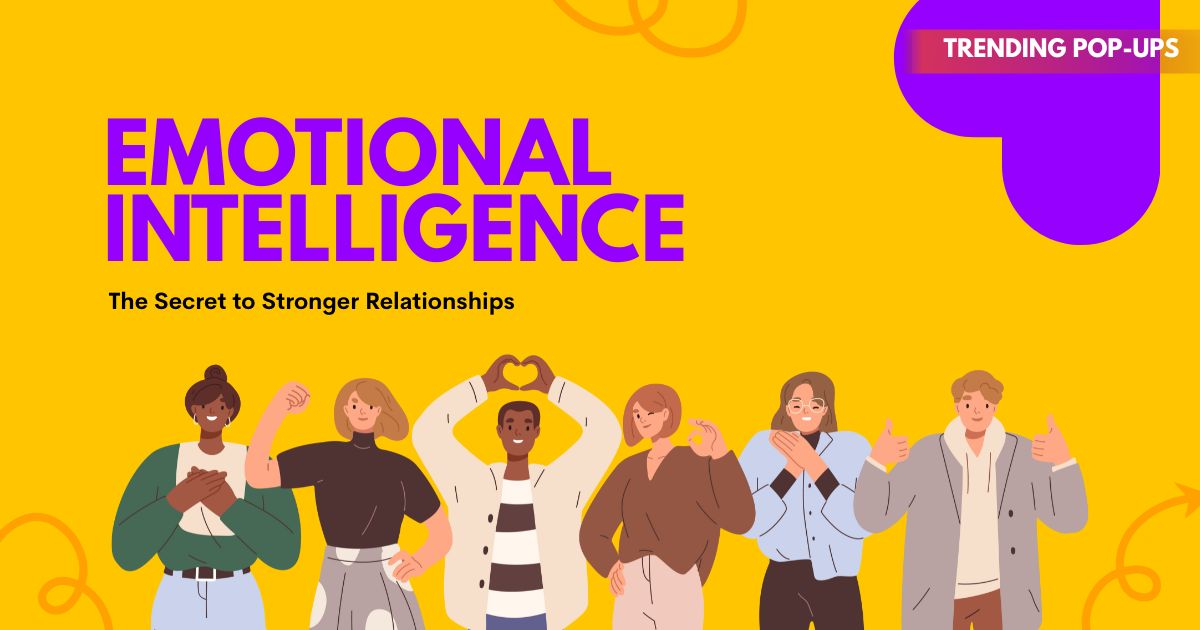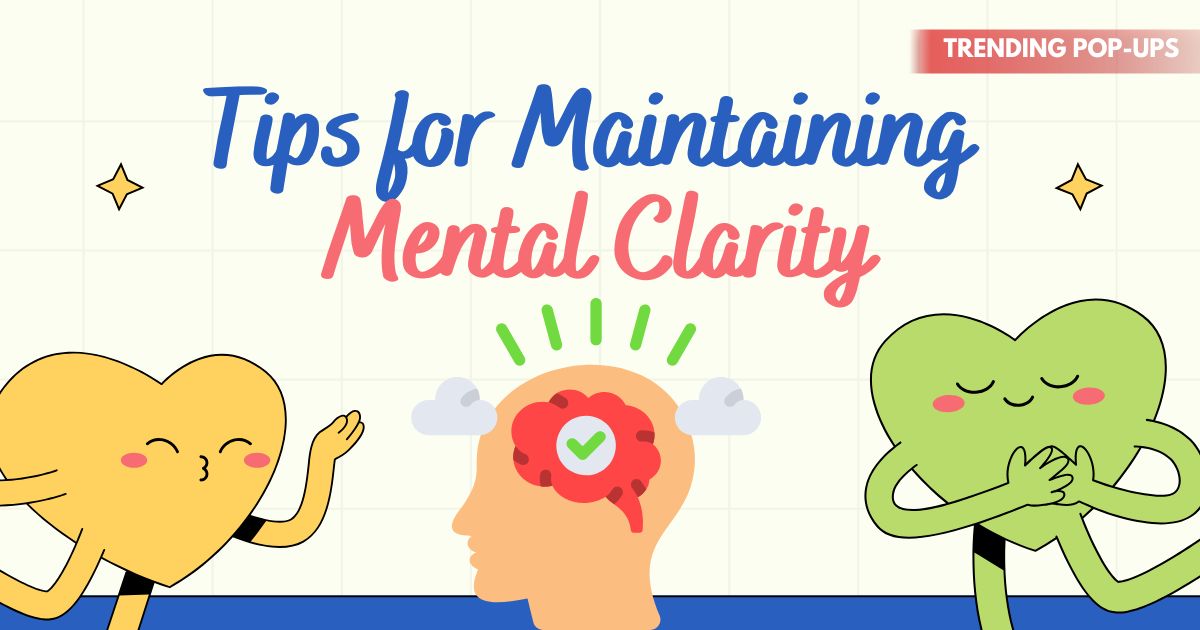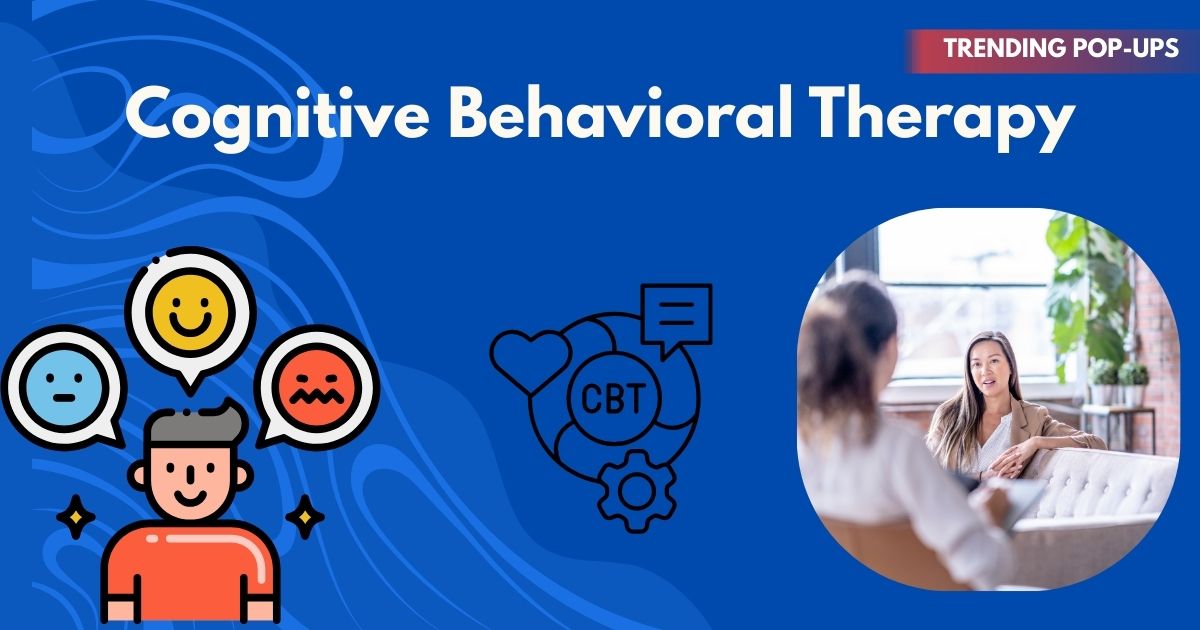In today’s fast-paced and often emotionally demanding world, one trait stands out as a key factor in building meaningful and lasting connections: emotional intelligence (EI). Unlike IQ, which measures intellectual ability, emotional intelligence reflects how well you understand, manage, and express your emotions—and how effectively you navigate the emotions of others.
From friendships to romantic partnerships and even professional collaborations, emotional intelligence is often the hidden ingredient that fosters trust, empathy, and long-term harmony.
In this article, we’ll explore what emotional intelligence is, why it’s crucial for strong relationships, and how you can develop it to enhance your personal and social life.
What Is Emotional Intelligence?
Emotional intelligence is the ability to recognize, understand, and manage your own emotions while also being attuned to the feelings of others. Psychologist Daniel Goleman, who popularized the concept, outlined five core components of EI:
-
Self-awareness – Recognizing your emotions and how they affect your behavior.
-
Self-regulation – Controlling impulsive feelings and adapting to changing circumstances.
-
Motivation – Staying committed to goals with resilience and positivity.
-
Empathy – Understanding and sharing the emotions of others.
-
Social skills – Building healthy communication, conflict resolution, and collaboration.
These skills work together to create an emotionally intelligent person who can handle challenges without damaging relationships.
Why Emotional Intelligence Matters in Relationships
Strong relationships are not built solely on shared interests or physical attraction—they thrive on emotional connection. Here’s how EI contributes:
1. Better Communication
High emotional intelligence allows individuals to express themselves clearly without being overly reactive or defensive. This prevents misunderstandings and promotes open dialogue.
2. Conflict Resolution
Disagreements are inevitable in any relationship, but EI helps manage them constructively. Instead of escalating arguments, emotionally intelligent people seek solutions and compromises.
3. Empathy and Understanding
When you can put yourself in someone else’s shoes, you validate their feelings and strengthen trust. This deepens emotional bonds.
4. Resilience During Challenges
Relationships go through ups and downs. Emotional intelligence provides the patience and positivity needed to navigate stressful times without damaging the connection.
5. Long-Term Relationship Satisfaction
Studies show that couples with higher emotional intelligence report greater satisfaction and intimacy, making EI a powerful predictor of lasting love and friendship.
Signs of High Emotional Intelligence in Relationships
You might already display high emotional intelligence without realizing it. Some common indicators include:
-
You listen actively instead of just waiting to reply.
-
You acknowledge and validate others’ emotions.
-
You don’t hold grudges; you work toward resolution.
-
You can manage your anger and stress without taking it out on others.
-
You celebrate your partner’s or friend’s achievements genuinely.
How to Develop Emotional Intelligence for Stronger Relationships
The good news is that emotional intelligence isn’t fixed—it can be cultivated. Here are practical steps to strengthen your EI and improve your connections:
1. Practice Self-Awareness Daily
Keep a journal to track your emotions and triggers. By noticing patterns, you’ll gain better control over your reactions.
2. Learn Emotional Regulation
Before reacting in anger or frustration, take a pause. Techniques like deep breathing, meditation, or walking away for a moment can help you respond more thoughtfully.
3. Strengthen Empathy
Try to see situations from the perspective of your partner, friend, or colleague. Ask yourself: “How would I feel in their position?” This builds compassion and understanding.
4. Improve Communication Skills
Focus on active listening—giving full attention, asking clarifying questions, and reflecting back what you’ve heard. Clear communication prevents conflicts from spiraling.
5. Develop Conflict Resolution Strategies
Instead of focusing on winning an argument, shift the goal toward resolving it. Compromise, apologize when necessary, and work toward mutual solutions.
6. Nurture Positive Mindsets
Stay motivated and supportive in relationships. Express gratitude often and celebrate small victories together.
The Role of Emotional Intelligence in Different Types of Relationships
Romantic Relationships
EI fosters deeper intimacy, healthier communication, and long-term commitment. Couples who understand each other emotionally often navigate challenges like finances, parenting, and stress more successfully.
Friendships
Empathy and active listening strengthen friendships. Emotional intelligence helps friends support each other without judgment or unnecessary drama.
Family Bonds
Within families, EI reduces generational misunderstandings and enhances respect. It’s especially crucial in parenting, where modeling emotional regulation teaches children valuable life skills.
Workplace Relationships
Professional success is not just about technical skills. Emotional intelligence improves teamwork, leadership, and networking—key factors for career growth.
Benefits of Building Emotional Intelligence
-
Stronger, healthier relationships.
-
Reduced stress and anxiety in social situations.
-
Greater resilience in the face of conflict.
-
Improved self-esteem and self-control.
-
Enhanced personal and professional success.
Also Read : The Sleep–Mental Health Connection You Didn’t Know About
FAQs
Q1: Can emotional intelligence really be improved, or is it innate?
A: While some people naturally exhibit higher EI, it can absolutely be developed with consistent practice and self-awareness.
Q2: Is emotional intelligence more important than IQ in relationships?
A: Both matter, but EI plays a bigger role in maintaining healthy, lasting relationships because it directly impacts communication and empathy.
Q3: How can I test my emotional intelligence?
A: Online assessments exist, but the best measure is self-reflection and feedback from trusted friends or loved ones.
Q4: What’s the biggest barrier to emotional intelligence?
A: Often, it’s poor self-awareness or unmanaged stress. Learning to pause and reflect can overcome these challenges.
Q5: Does emotional intelligence prevent all conflicts in relationships?
A: No, conflicts will still happen—but EI ensures they’re resolved in healthier and more constructive ways.



